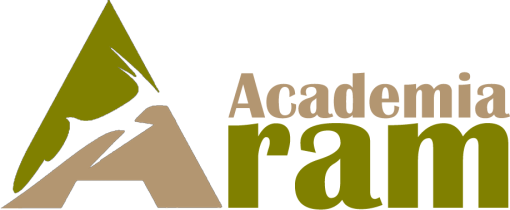VocaBooster
Part II
- Identify Your VLS
VLS questionnaire will help learners identify their favorable vocabulary learning strategy/strategies according to their responses, making it easy for them to create their own self-study plan to acquire and learn vocabulary more efficiently and naturally. This questionnaire was adapted from Schmitt 1997, and it consists of five parts that represent Schmitt's five learning strategies, i.e., Determination, Social, Memory, Cognitive, and Metacognitive Strategies. Consequently, learners can create, manage, select, and use vocabulary learning strategies that enable them to recall words utilizing flashcards to obtain language skills and knowledge (explicit learning) or to read extensively to increase their language skills and knowledge (implicit learning). As a result, successful learners must concentrate on some vocabulary learning strategies over others and utilize different techniques in adaptable and flexible ways to gain improved results (Schmitt, 1997; Farjami & Aidinlou, 2013).
PRESS HERE OR SCAN THE CODE TO START THE QUESTIONNAIRE
2. Vocabulary Development Techniques
Now, based on your favored VLS, you need to consider the following points to better develop and attain vocabulary.
-
Where would you record your vocabulary?
You may use a conventional method such as a physical paper notebook, using digital flashcards such as Quizlet (see 6.4 Quizlet Sets), or note-taking apps such as GoodNotes (https://www.goodnotes.com/) and Evernote (https://evernote.com/).
-
How would you record your vocabulary?
You may use the way you prefer, but research suggests that cognitive strategies such as writing, drawing, and in-detailed exploration support word acquisition. You can include the following points while recording your unfamiliar words:
-
Importance
Focus on words that are relevant to you and your purpose, such as education, business, medicine, engineering, etc.
-
Meaning (MEM)[1]
Try defining the unfamiliar word in English instead of translating it into your own language.
-
For example, Boost: help or encourage (something); increase; improve.
-
Pronunciation (MEM) (COG) (MET) (DET)
Pronunciation is very crucial in learning a new word; where you can write the following:
- phonemic script /buːst/
- phonetic respelling /Buhst/ or
- syllables and stress /Ooo/.
- Part of speech/word class (MEM) (DET)
Knowing whether the word is a noun, a verb, an adjective, or an adverb is also helpful in memorizing the word.
-
-
- For example, Boost: verb
-
- Example sentence (MEM) (DET) (SOC)
Including an example sentence may help understand the word in context and ease in relating it to a life experience.
-
-
- For example, I am using this kit to boost my vocabulary.
-
- Translation Pronunciation (DET) (MEM) (SOC)
Translation is advisable if you notice that you need to relate the meaning to your first language.
-
-
- For example, Boost: يدعم or galakan
-
- Collocations (MEM) (DET)
A collocation is two or more words that often go together. Noting down collocations will help in understanding how words are connected together and enable better fluency in communication.
-
-
- For example, big boost: They are such a big boost to our business.
-
- Synonyms and antonyms (MEM) (DET)
Writing synonyms (words with the same meanings) and antonyms (words with different meanings) will help enhance your vocabulary understanding of the word and provide a variety of similar words that can be used in place of the target word.
-
-
- For example, Boost: (Synonyms) increase; enhance
-
(Antonym) decrease; diminish
- Drawings and Images (MEM) (COG)
Drawings and images are far more memorable than words. Thus, drawing or adding an image to vocabulary cards will enhance the memorizing that word. Researchers refer to this as the 'picture superiority effect.'
-
-
- For example, Boost:
- For example, Boost:
-
- Mnemonics (MEM) (COG) (MET)
A mnemonic or memory device is any learning technique that aids information retention or retrieval (remembering) in human memory.
-
-
- For example, you can make a couple of different phrases Using the first letters of each continent name Europe, Asia, Africa, Australia, Antarctica, North Ameri, or South America. Try "Eat An Apple As A Nice Snack." to remind you of the seven continent names.
-
- Vocabulary Recording Cards Samples
These cards are tailored specially to cope with the five vocabulary strategies based on the strategies suggested in section B.
Table 02: (SOCIAL Strategy Vocabulary Card)
|
Word |
Teacher/Colleague Meaning |
Teacher/Colleague Translation |
|
Jewelry |
objects such as rings and necklaces that people wear as decoration |
جوهرة barang kemas
|
|
Teacher Example |
Colleague Example |
|
|
I went to the jewelry shop. |
I am not too fond of jewelry. |
Table 03: (Memory Strategy Vocabulary Card)
|
Word
|
Pronunciation |
Meaning |
Affixes |
Pictorial |
|
Jewelry |
/ˈdʒuːəlri/ |
objects such as rings and necklaces that people wear as decoration |
Jewels jewelry |
|
|
Example |
Personal experience |
Spelling |
|
|
|
She has some lovely pieces of jewelry. |
My mom jas lost her jewelry |
J e w e l r y |
|
Table 04: (Cognitive Strategy Vocabulary Card)
|
Word |
Flashcard |
Audio |
Meaning |
Word list |
Notes |
|||
|
Red |
|
|
to do things for pleasure, as children do; to enjoy yourself rather than work |
Red Blue Yellow Green |
Red is my favorite color |
Table 05: (Determination Strategy Vocabulary Card)
|
Word |
Part Of Speech |
Meaning |
Translation |
|
|
Pencil |
noun |
a narrow piece of wood, or a metal or plastic case, containing a black or colored substance used for drawing or writing |
قلم / pensel |
|
|
Affixes |
Example |
Picture / Drawing
|
||
|
Play Playing Played Playful |
I'll get a pencil and paper.
|
|
||
[1] (MEM), (DET), (SOC), (COG), (MET) suggests the recommended vocabulary strategies preferred for each method.
